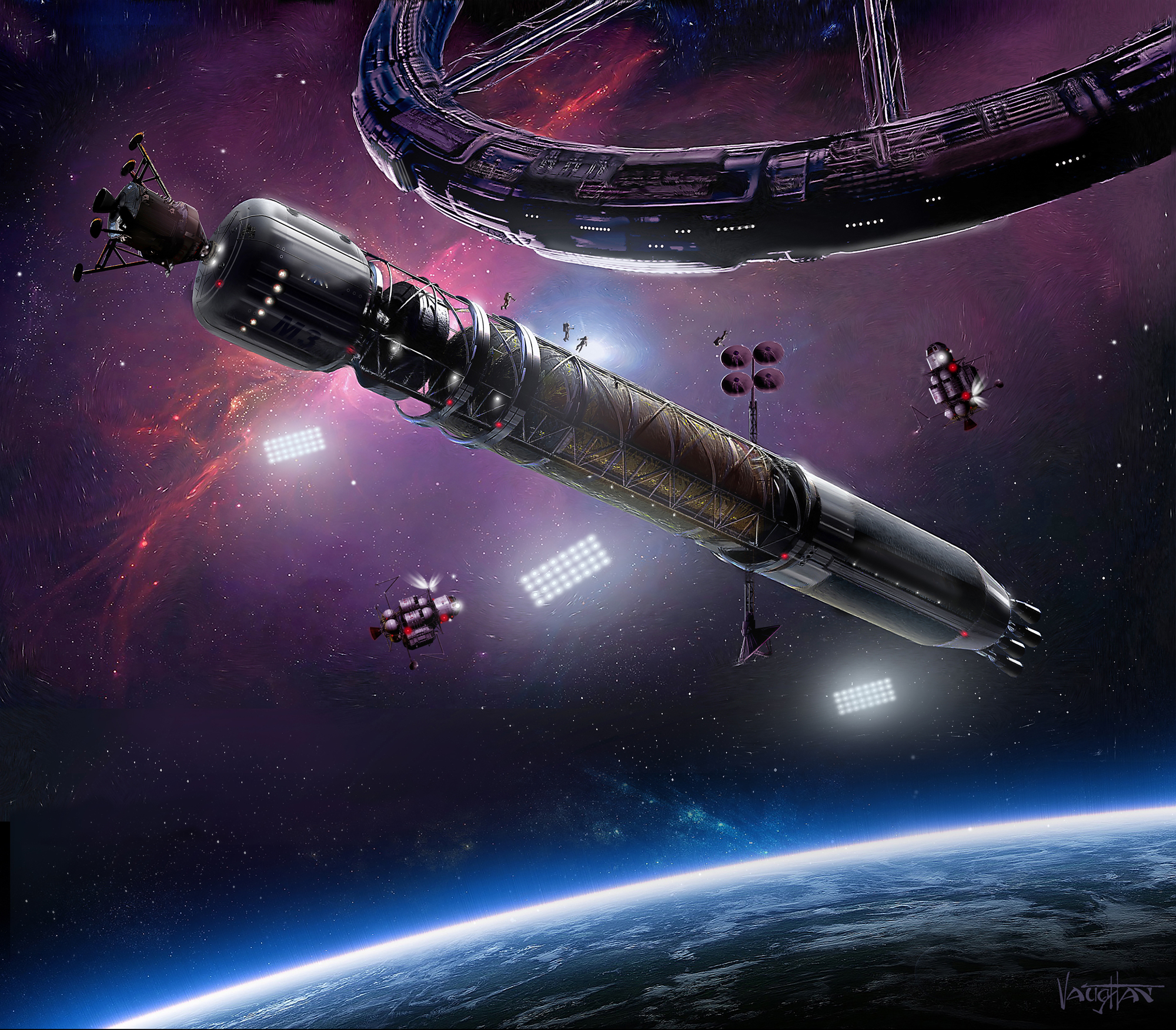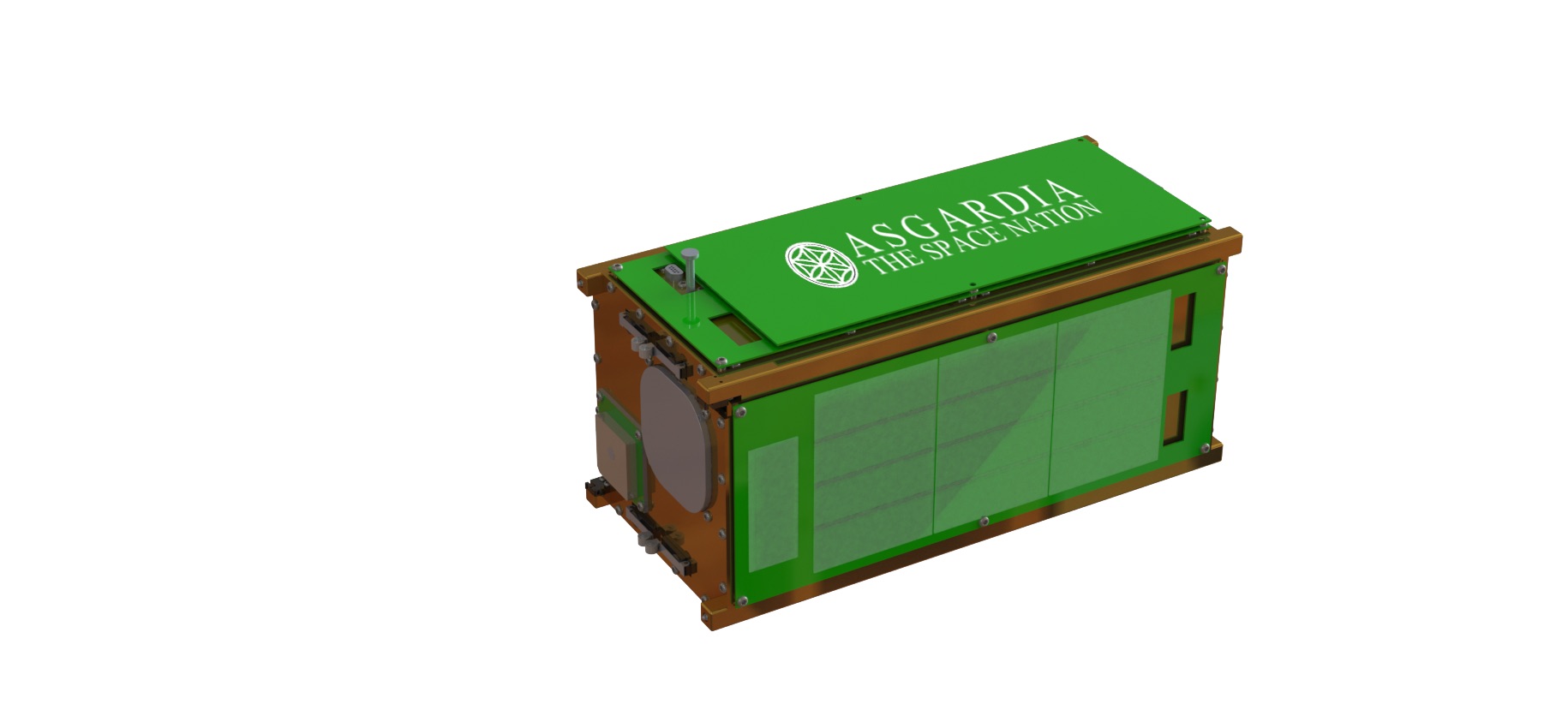Far-Out Nation: Hopeful Space-Based Country Asgardia to Launch Satellite

While it plans to someday host a moon colony and space station, the proposed space-based nation Asgardia is starting small: The project will launch its first satellite this fall to store data for the nation's newly selected citizens. Some 200,000 were chosen from the more than 500,000 applicants.
During a press conference in Hong Kong on June 13, Asgardia's founder, Igor Ashurbeyli, revealed concrete details about the satellite: Asgardia-1 will be deployed from Orbital ATK's Cygnus OA-8 resupply spacecraft launching in September. The satellite is 10 x 20 x 20 centimeters (3.9 x 7.9 x 7.9 inches) and has eight batteries and four deployable solar arrays. It will orbit at up to 500 kilometers (310 miles) above Earth. Texas-based space-services firm NanoRacks acts as the satellite's prime contractor and operator.
Someday, Ashurbeyli said, he hopes to create a planetary-defense constellation that will help protect against asteroids, solar flares and human-made space debris; this satellite is just the first step. [Gallery: Private Space Stations of the Future Imagined]

During the conference, Ashurbeyli also described plans for a space station and moon colony. "We plan to have this station in space and on the moon," he said. "It will be a four-level orbital station. I think the technical details will be defined by the Ministry of Science, which I hope we will have in the autumn of this year."
Ashurbeyli didn't provide additional details, but Asgardia has released imagery of the potential off-Earth locations. One image shows a rotating-wheel space station alongside an interplanetary rocket, and another shows, presumably, the interior of that space station with a wall of windows, a canal and greenery. The rocket has a habitation module and a lunar lander that looks like a cross between the NASA Orion spacecraft and the 1960s Apollo program lunar lander.
The approved applicants for Asgardian citizenship will be invited to vote on a constitution for the space-based nation on June 18. At that time, Ashurbeyli said, the organs of the proposed state — the ministries, parliament and executive branch — should be created. Ashurbeyli is calling June 18 Asgardian National Unity Day, and the date will be a public holiday if the state is realized.
More than 500,000 people applied for Asgardian citizenship online within 20 days when the project was announced in October last year. The organizers removed ineligible people, such as children, and were left with almost 200,000 people from about 200 countries. (Now, the website lists more than 210,000.) The approved applicants have each received personal certificates of Asgardia and can vote to approve the lawyer-designed constitution on June 18. The constitution was published on June 13. [Incredible Technology: How to Build a Space Station Colony]
Get the Space.com Newsletter
Breaking space news, the latest updates on rocket launches, skywatching events and more!
Of the citizenship applicants, 80 percent are men, and the largest demographic comprises 18- to 35-year-olds. While there are applicants from almost every country on Earth, China has the most applicants, followed by Turkey, then the United States and then Italy. People can register as prospective Asgardians on the website.
Asgardia is being funded by Ashurbeyli's nonprofit Aerospace International Research Center (AIRC), based in Vienna. He said he expects that once Asgardia's constitution is approved, the state will be built by its citizen volunteers and Asgardia will become self-funding. Ashurbeyli said he expects to file for United Nations recognition by April 2018, if Asgardia's parliament and government have been set up and the satellite launched before then, he said during the conference.

In the meantime, AIRC owns Asgardian intellectual property. The company will collect, analyze and fund ideas and startups in space technology for the benefit of Asgardia. Ashurbeyli is also offering 300KB of free data storage on board Asgardia-1 for Asgardian citizens. Family members, up to a maximum of 400,000 people, will get 200KB. Another 1 million people will get 100KB.
"Sixty years after the launch of the first-ever artificial satellite, Sputnik, our own space satellite, Asgardia-1, will mark the beginning of a new space era, taking our citizens into space in virtual form, at first," Ashurbeyli said.
Ram Jakhu, the director of McGill University's Institute of Air and Space Law in Montreal, is the Asgardia project team legal expert. During the conference, he told the press that the Asgardian data stored on Asgardia-1 would be subject to U.S. privacy laws. The Asgardians' data will also be stored on future Asgardian satellites.
Follow us @Spacedotcom, Facebook and Google+. Original article on Space.com.
Join our Space Forums to keep talking space on the latest missions, night sky and more! And if you have a news tip, correction or comment, let us know at: community@space.com.
Rob Coppinger is a veteran aerospace writer whose work has appeared in Flight International, on the BBC, in The Engineer, Live Science, the Aviation Week Network and other publications. He has covered a wide range of subjects from aviation and aerospace technology to space exploration, information technology and engineering. In September 2021, Rob became the editor of SpaceFlight Magazine, a publication by the British Interplanetary Society. He is based in France. You can follow Rob's latest space project via Twitter.









